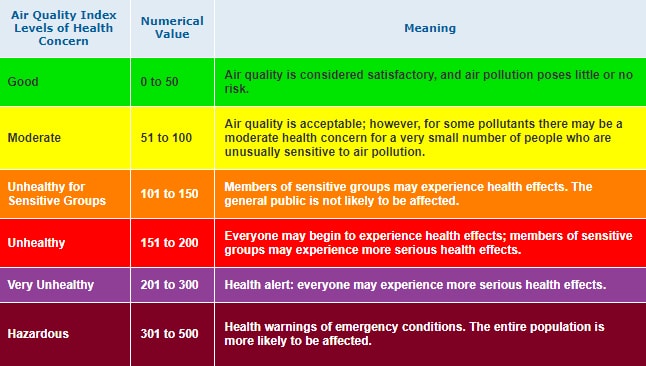Lahore's air quality went from being 'hazardous' to 'unhealthy' with an Air Quality Index (AQI) ranking of 157 on Saturday, according to Air Visual.
The Punjab capital, which was recorded to be the world's second most polluted city for weeks, finally slid to the third spot. Uzbekistan's Tashkent replaced Lahore as the second most polluted city, while Delhi retained its top position with a 'very unhealthy' air quality ranking according to Air Visual, which records air pollution levels across the globe in real time.
The air quality ranking of Karachi — previously classified as 'unhealthy' — was recorded as 'unhealthy for sensitive groups' with an AQI of 144. The metropolis is currently the 10th most polluted city in the world, according to Air Visual.

An AQI ranking between 151-200 is classified as 'very unhealthy', according to Air Now, and may cause the entire population to experience adverse effects. 'Sensitive groups', i.e., people with lung diseases, children and elderly people, may be at greater risk.
Areas with an AQI ranking between 101-150 is classified as 'unhealthy for sensitive groups' and may pose health risks to 'sensitive groups', i.e., people with lung diseases, children and elderly people. "The general public is not likely to be affected," Air Now says.
For the last four years, smog, rightly being called the fifth season of Lahore, has deprived the people of sunshine and dusk-hour charm as layers of toxic smoke engulf horizon from November to February.
The situation became worse this year as the Punjab government, for the first time, announced the closure of schools due to dense smog. Residents accuse the government of taking insufficient measures to control the situation even as the administration insists that it is making efforts to deal with the smog.
Adviser to Prime Minister on Climate Change Malik Amin Aslam, earlier this month, said Pakistan has taken measures to stop crops stubble burning, a major cause of the phenomenon, and other countries should also come forward to address it.
He said that two smog checking units had been installed in Lahore and his department was also focusing on measures to increase resources to address the issue.
"With the help of the World Bank the government was launching a programme to address the air quality issue," he said.
The adviser said the smog level in India was increasing but the Pakistani government had taken measures to reduce it here. He pledged that Lahore would be made “smog free”.
Government officials blame the smog on crop burnings in India. Experts, however, say that the situation is caused by pollution in the country.















































